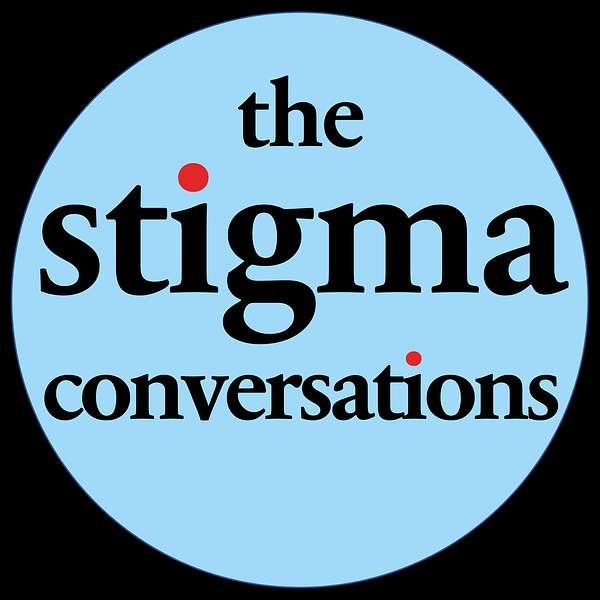
The Stigma Conversations
Sociologist Imogen Tyler meets inspirational activists, academics and frontline workers to talk about Stigma - how it’s created, how it divides us, who it serves and how we might resist. Intimate and urgent conversations on poverty and power, racism and resistance, solidarity and hope. From one of the UK’s leading activist scholars.
The Stigma Conversations
Introducing The Stigma Conversations
What is stigma? Who does it serve? And how does it shape a world broken by poverty, prejudice, and injustice? Welcome to The Stigma Conversations, with leading activist sociologist Imogen Tyler. Join Imogen as she meets inspirational academics, activists and frontline workers to show that while stigma is certainly about feelings and experiences, it’s also about power, politics and history. We are in a state of emergency, and we need to take action, now.
Through intimate and urgent conversations on subjects including poverty and austerity, racism and Brexit, and the ongoing “war on woke”, Imogen and guests show that to truly tackle stigma we need to ask big questions about how it is produced and what its history is. Only then can we start to call out the systems that divide and dehumanise us – and ask for better. Indeed, as The Stigma Conversations shows – with each episode closing with a thoughtful short essay from Imogen – the story of stigma is also one of subversion, solidarity and hope.
Click ‘subscribe’ or ‘follow’ now in the podcast app that you use, to be sure that you hear every episode. Read more about Imogen and her book, Stigma: The Machinery of Inequality. Find out more about The Stigma Conversations at The Sociological Review.
Series credits:
Host: Imogen Tyler
Executive and Development Producer: Alice Bloch
Project Lead: Imogen Tyler
Project Officer: Danielle Galway
Sound Engineer: David Crackles
Music: Bruce Bennett
Artwork: Bruce Bennett
Imogen Tyler: 0:03
I'm Imogen Tyler, a sociologist working on social inequalities, and in the stigma conversations and meeting inspirational activists, academics and welfare workers to help me understand stigma - as something about feelings and experience - yes. But also about power, politics, history. I'm interested in where stigma comes from, how it divides and marks us all - sometimes literally - and what we can do about it.
Andy Knox: 0:35
Change can happen, change has happened. And we are at - I would say - an apocalyptic moment. That means things have been revealed for what they're truly like.
Helen Greatorex: 0:48
If you're outraged about something, the chances are it's linked to some sort of policy that could be changed, that could then improve people's lives.
Geraldine Onek: 0:57
I think with antiracism is that proactivity? Isn't it like... actively having those discussions, even though they make you feel uncomfortable?
Imogen Tyler: 1:06
Join me as I meet a GP, horrified at how poverty is making us sick.
Andy Knox: 1:11
A lot of people come to us simply to say 'my life's terrible, and I don't know what to do about it'.
Imogen Tyler: 1:18
The Citizens Advice head - worried at how destitution is becoming the new normal - yet, is still something wrapped up in shame.
Helen Greatorex: 1:27
You can have a working mom, and she can tell you that she's no money to feed the kids and that although - yeah, a food parcel would be great - she can't put the oven on to cook that food. That story should be shouted from the rooftops. Just that one story.
Imogen Tyler: 1:42
And the academic is talking to the people changing the story of stigma, by tattooing themselves with the number once put on the arm of the ancestors who survived Auschwitz.
Alice Bloch: 1:55
It was about love. It was about wanting the survivor to know that they were loved, that their trauma was understood that the memory lived on and it shouldn't be a stigma.
Imogen Tyler: 2:08
Because the story of stigma might well be overwhelming, but it's also a story of hope.
Geraldine Onek: 2:14
I always teach - even children - that adults don't know everything. Every day is changing. We're finding out more information day to day.
Imogen Tyler: 2:22
Right on? Woke? Critical. Yep. So join me - Imogen Tyler for The Stigma Conversations coming soon from the Sociological Review. Subscribe wherever you get your podcasts and read more on the podcast page at thesociologicalreview.org
